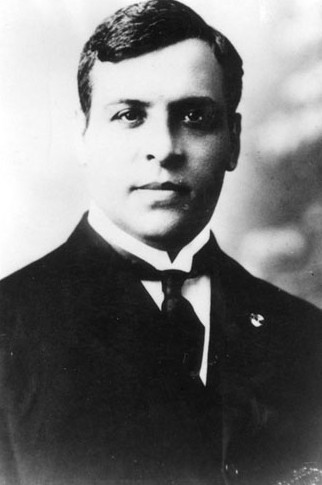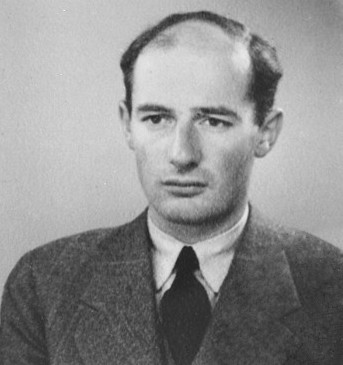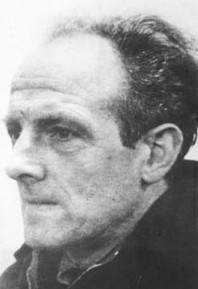The Holocaust
Aristides de Sousa Mendes: The Portuguese Diplomat Who Saved 12,000 Jews and Defied Nazi Orders
The inspiring true story of a man who risked everything to follow his conscience — choosing to stand with God against tyranny
- Hidabroot
- |Updated

I have had the honor of speaking with Gerald Mendes, the grandson of one of the greatest Righteous Among the Nations — the Portuguese consul in Bordeaux, Aristides de Sousa Mendes.
Portugal was one of the few European countries that remained neutral during World War II. This neutrality made it a potential refuge for Jews fleeing Nazi persecution. But in May 1940, when Germany invaded Belgium and the Netherlands, the Portuguese government grew afraid of angering the Nazis. It issued a strict order to all its diplomats: “Do not issue transit visas to Jewish refugees. Only British citizens with official recommendations from the British consulate may receive visas.”
The Consul Who Disobeyed to Save Lives
In Bordeaux, tens of thousands of desperate Jewish refugees crowded the streets — not only from France but from Belgium as well. Among them was Rabbi Chaim Krüger, the Chief Rabbi of Antwerp, who fled with his wife and five children. When he met with Consul Sousa Mendes, he spoke openly about the fate awaiting the Jews if they could not escape Nazi hands.
Sousa Mendes was a seasoned diplomat from a noble family, known for his discipline and loyalty to the Portuguese government. But he was also a deeply religious man, and Rabbi Krüger’s words shook him to the core.
He made a fateful decision to defy the government’s orders and issue visas to every Jewish refugee who needed one.
For twelve consecutive days in June 1940, Sousa Mendes — assisted by his wife and two eldest sons, worked without rest, signing visa after visa. By the end, he had personally saved 12,000 Jews from certain death. He refused all payment. When a wealthy Jewish man offered him half a sack of gold in gratitude, Sousa Mendes issued the visa but declined the gold.
“Better to Stand with God Against Man”
Sousa Mendes knew that his defiance would bring severe punishment under Portugal’s authoritarian regime, but he refused to back down. His family recalls his words: “I must save these people. If I disobey, I prefer to stand with God against man than with man against God.”
The punishment came swiftly. He was recalled to Lisbon, put on trial behind closed doors, and dismissed from the diplomatic service. His pension and law license were revoked, leaving him unable to earn a living. His thirteen children were blacklisted and barred from professional advancement.
The family fell into extreme poverty. Their once-proud home decayed into ruins. The children scattered across the world. Aristides de Sousa Mendes died in 1954, penniless — leaving his children a single legacy: “Fight to clear my name.”
 Aristides de Sousa Mendes
Aristides de Sousa MendesForgotten Hero, Rediscovered Legacy
For many years, Sousa Mendes’s name was almost forgotten. Only in recent decades did descendants of the Jews he saved begin working to restore his honor and preserve his legacy. Together with his family, they established the Sousa Mendes Foundation, dedicated to education and remembrance.
When I spoke with his grandson Gerald, I asked how the family viewed the enormous sacrifice their grandfather had made — his heroism that condemned his family to years of suffering and exile.
“No one in our large family ever expressed regret,” Gerald told me. “My father always said that his parents made their decision together — to disobey the orders, and they never had a single moment of remorse. We have always been very proud. We know he saved countless lives.”
 Raoul Wallenberg
Raoul WallenbergThe Few Who Chose Courage
On Holocaust Remembrance Day, the focus naturally turns to the immense evil that swept the world — the six million murdered and the suffering of survivors. However, it is just as important to remember that not everyone chose silence.
While the Righteous Among the Nations were few, their numbers were not insignificant. Even when most diplomats turned away from desperate refugees, a handful of pure-hearted souls like Sousa Mendes risked everything to save lives.
Some paid with their lives. Raoul Wallenberg, the Swedish envoy in Hungary, saved tens of thousands of Jews through extraordinary courage — only to vanish into Soviet captivity, never to return. Joop Westerweel, a Dutch educator and father of four, helped smuggle 300 Jewish children to safety before being caught, tortured for five months, and executed. Suzanne Spaak, a member of the French resistance who hid Jewish children, was arrested and murdered by the Gestapo.
The stories of these heroes remind us that humanity was not extinguished — even in its darkest hour.
 Joop Westerweel
Joop WesterweelChoosing the Side of God
Most Europeans were not Nazis or active collaborators. They were simply silent. They chose not to risk their comfort or safety. They watched as Jews were rounded up and killed, doing nothing. It is easy for us, the descendants of six million victims, to condemn them. But would we truly have acted differently?
As Holocaust survivor Rebbetzin Esther Jungreis once said: “People ask me, ‘Where was God during the Holocaust?’
I ask a different question: ‘Where was man during the Holocaust?’”
Humanity was everywhere — some silent, some complicit, a rare few defiant. Sousa Mendes, Wallenberg, and Westerweel all paid dearly for refusing to surrender to evil. Some paid with their lives.
“I am very proud of my grandfather and our whole family,” Gerald Mendes told me. “They went through hard times, but my grandfather remains an inspiration to us all. Whenever I hear of evil in the world, I think of him — and I try to imagine what he would have done.”
Aristides de Sousa Mendes should be an inspiration not only to his descendants, but to all of us — a symbol of conscience, courage, and faith. On this day of remembrance, the best way to honor him and others like him is to live as they lived: with the conviction that doing what is right is worth any price.
Sometimes, the highest form of humanity is simply to choose, like Aristides de Sousa Mendes, to stand on the side of God.

